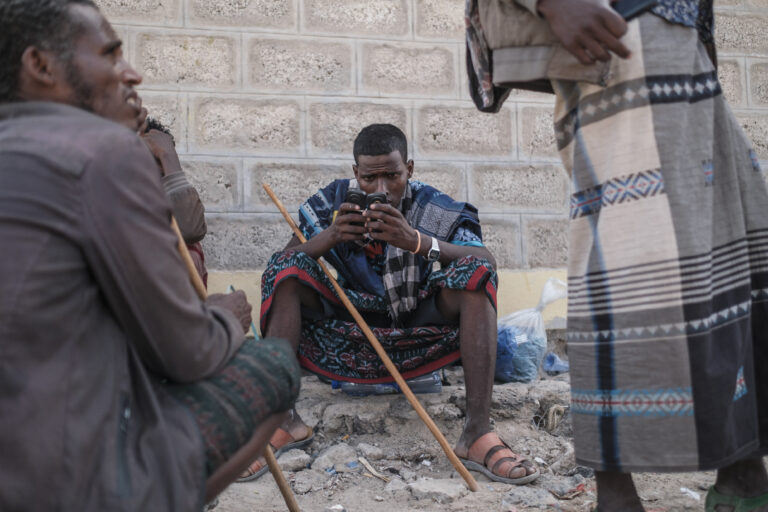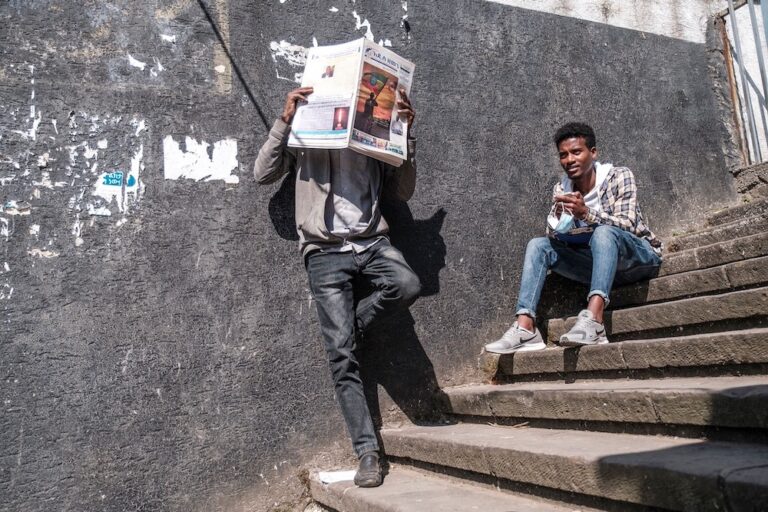(IPI/IFEX) – The following is a 17 December 2003 IPI press release: Vienna, 17 December 2003 IPI Calls on Ethiopian Government to Abandon Draft Press Law In a report released today, the International Press Institute (IPI), described the draft press law as a “severe and unnecessary restriction on the right of journalists to practice their […]
(IPI/IFEX) – The following is a 17 December 2003 IPI press release:
Vienna, 17 December 2003
IPI Calls on Ethiopian Government to Abandon Draft Press Law
In a report released today, the International Press Institute (IPI), described the draft press law as a “severe and unnecessary restriction on the right of journalists to practice their profession.” The report highlights a number of articles which infringe press freedom and the free flow of information in Ethiopia.
According to the report, clauses which support the media are heavily “outweighed by the sheer number of poorly defined clauses penalizing the media, a plethora of burdensome administrative duties, needless registration and licensing obligations, harsh and punitive fines as well as imprisonment for purely superficial breaches of the [draft press law].”
On the question of information, the report accuses the Ethiopian government of trying to build a “firewall” around the country, in order to prevent comment, news and opinion flowing freely into the country. The government also uses other articles in the legislation to maintain a tight control over media activities. In addition, the law requires media organisations to give the authorities invasive and unnecessary details of their finances such as their earnings from advertising, as well as details of foreign aid.
Speaking of the draft press law, director of IPI, Johann P. Fritz said, “If passed, I think the law will become the cornerstone of the government’s attempts to suppress and intimidate the media in the country.”
Concerning the independent media in Ethiopia, Fritz said, “Under the proposed law the independent media will have little chance and the Ethiopian media scene will be further dominated by government-owned or government-supported media. There can be no coincidence in the fact that the most outspoken critic of this draft law, the independent EFJA organisation, has been suspended and its members prevented from associating. This would appear to be part of the government’s attempt to silence all domestic critics in the lead up to the passage of this law.”
“The media environment in Ethiopia is at a critical stage and the government is faced with a choice: it can either continue with the passage of this law, which would be a retrograde step not only for the media but also for the country as a whole; or it can seek a wide ranging dialogue with all interested parties to create a media environment that encourages the free flow of information.”
He then went on to say, “I think the key test will be whether the government attempts to pass this law before the end of the year; if it does so then it will be sending a clear signal to the international community that it values suppression of journalists over the dissemination of information.”
To view the report visit the IPI website at
www.freemedia.at/Protests%202003/R_EthiopiaLaw17.12.03.htm


